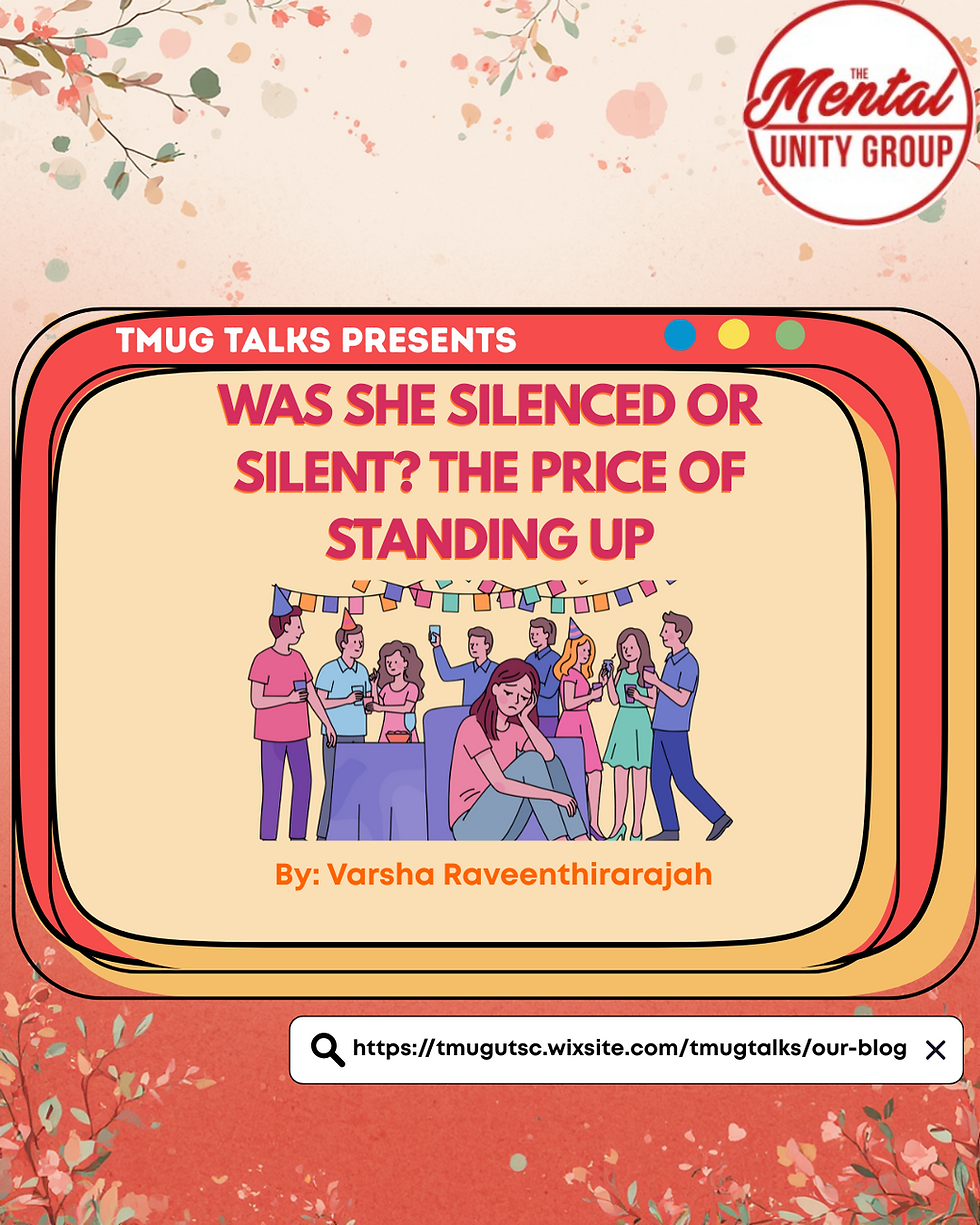Disparities Demand Dialogue
- Aarya Koppikar

- Jul 3, 2021
- 3 min read

Have you ever been to a foreign country? Maybe somewhere in Europe or Asia? You’ll likely have noticed that each country, state, or city you visit has its own unique culture. Each of these cultures has their own values, their own strengths, and makes an effort to cater to the needs of the people that belong to it. On another note, it’s no secret that mental health issues are difficult for anyone to endure. A diagnosis may feel hopeless, and the person may be unable to change life situations that contribute to their mental health struggle. But, historically, mental health and the issues that come with the lack of support around it have been stigmatized, and even overlooked in many cultures, especially those not located in North America. But, as the general public are becoming more informed and open about the importance of mental wellness, treatment, and maintenance, the perspective of these cultures that otherwise did not prioritize their peoples’ mental health struggles, are slowly beginning to change. In North America, it is indisputable that minorities unfortunately experience the world in a different way than other individuals do. This includes experiencing mental struggles and treatment differently than everyone else too.
"People of color really don't want to say they struggle with mental health because we already feel stigmatized by virtue of skin color or eye shape or accent and we don't want any more reasons for anyone to say, 'You're not good enough.'" In one of her most famous quotes, Bebe Moore Cambell, a Black journalist, author, and activist discusses how race and mental health are closely intertwined - an issue which has increasingly sparked conversation in the last decade, but still has many more strides to make. Minority Mental Health Awareness Month first began in July 2008. The US House of Representatives decided to make it official after Campbell made an address. As she was unfortunately subjected to dealing with these difficulties firsthand, Campbell strives to raise awareness about the unique struggle minority groups face regarding mental health and wellness. Minority Mental Health Awareness Month acknowledges, brings attention to, and aims to eradicate the difficult and unfair reality that minorities have to deal with when struggling with mental illness.
Today, over a decade after Campbell started this important movement and demanded for systemic change, individuals and groups around the world are working towards erasing the stigma behind mental wellness and treatment in these minority groups, as well as making healthcare accessible in the same ways for all groups of people across North America. Some limiting factors present today in our healthcare system are: race and racial discrimination, social and economic inequalities, stigmas surrounding getting treatment, and the criminal justice system. For instance, according to a survey fielded by the Social Policy Institute at Washington University in St. Louis, black individuals showed higher levels of false hope and resilience regarding their mental well being as compared to their white counterparts, which speaks to the shame and disregard surrounding mental well being in minority communities.
One thing I am sure of, is that the disparities in mental health treatment in minority groups won’t be fixed with silence. With protests sweeping the globe with a demand for racial justice, LGBTQ+ rights, defunding the police, and many more pressing issues, the stigma, inaccessibility, and lack of funding regarding mental health treatment for minority groups also demands attention from the public. Vital to making a change in this systemic issue is increased funding, allowing open access to treatment, and an open dialogue regarding mental health in minority communities. Only then will we begin to tackle disparities in mental health care for minority groups. I believe it is our job, as a society, to address barriers in issues that are important for the well being of everyone, and demand justice in the face of systemic inequality.
Sources:
Bebe Moore Campbell. Mental Health America. (n.d.). https://mhanational.org/bebemoorecampbell.
Graham, C., Hamilton, B., Chun, Y., Roll, S., Ross, W., Joynt-Maddox, K., & Grinstein-Weiss, M. (2020). Coping with COVID-19: Implications of Differences in Resilience across Racial Groups for Mental Health and Well-being. Human Capital and Economic Opportunity Global Working Group. (Working paper 2020-067).





Comments